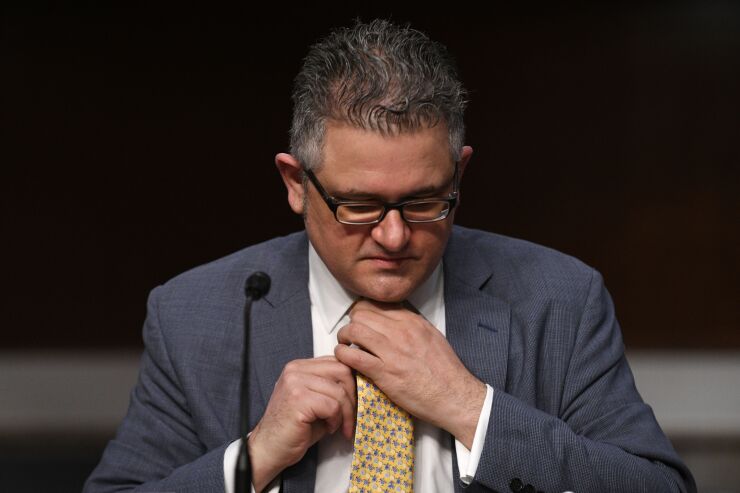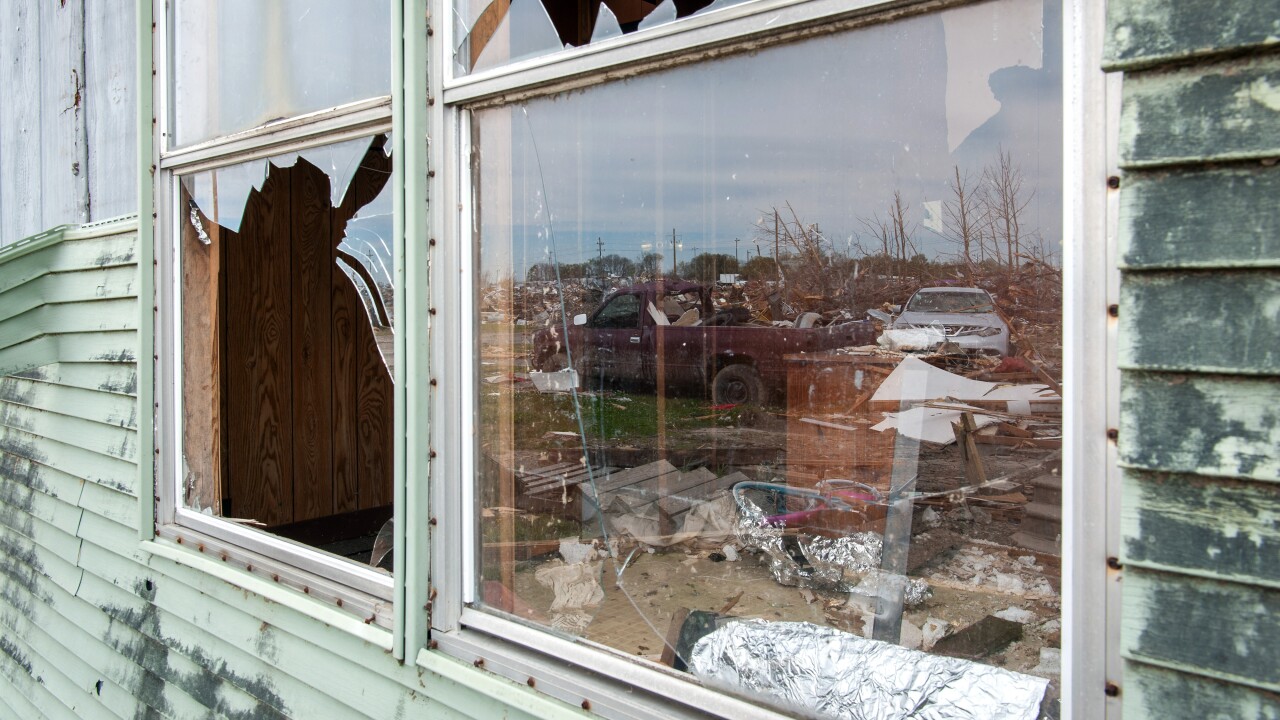WASHINGTON — Federal Housing Finance Agency Director Mark Calabria defended Fannie Mae and Freddie Mac's controversial "adverse market" fee at a virtual hearing with House lawmakers on Wednesday.
Calabria testified before the House Financial Services Committee, where members of both parties questioned the fee imposed on refinancings. The added charge is meant to help Fannie and Freddie shoulder losses associated with the COVID-19 pandemic, but the fee could raise costs by an estimated $1,400 for the average consumer.
“Rather than allowing homeowners to take advantage of historically low mortgage rates, Director Calabria announced a new refinance fee that would take some of the savings that would have otherwise gone into the pockets of families and instead redirect that money into the pockets of Fannie and Freddie,” said House Financial Services Committee Chairwoman Maxine Waters, D-Calif.
Rep. Patrick McHenry of North Carolina, the top Republican on the committee, said that the fee’s rollout on Aug. 12 was problematic, but that he understood Fannie and Freddie need to meet their financial obligations. Fannie and Freddie originally planned to start charging the fee Sept. 1, but that was delayed to Dec. 1 after backlash from the mortgage industry.

“The way this was announced and the initial three-week timing for its implementation doomed it from the start,” McHenry said. “Clearly, FHFA has a statutory obligation to ensure the GSEs operate in a safe and sound manner with sufficient resources to meet their obligations.”
Calabria argued that the fee was necessary in order to cover roughly $6 billion in projected losses resulting from the pandemic, which the two companies are required to recoup by law. He also said that the fee, 0.5% on refinanced mortgages, was lower than the fee Fannie and Freddie had initially requested. The government-sponsored enterprises will also exempt mortgage loans with a balance of less than $125,000 from the additional cost.
“By the charters of the GSEs, they are required to recapture those costs via income,” Calabria said. “This was Fannie and Freddie’s suggestion and as a safety and soundness regulator when I’ve got two multitrillion dollar entities coming to me and saying that if they aren’t allowed to increase their income that they are at the risk of distress, I simply have to take that seriously. I can’t simply ignore instability in the mortgage market.”
Calabria indicated that Congress could prevent the fee by appropriating funds to the GSEs to cover coronavirus-related losses. The FHFA has suggested that Fannie and Freddie's losses would be derived in part from forbearance policies mandated by the recent Coronavirus Aid, Relief, and Economic Security Act.
“Since this fee is resulting from costs that arise out of the CARES Act that are unfunded, of course Congress could fund that,” Calabria said. “I think it would have to be in the neighborhood of $10 billion that would make sure that we would not have to reassess any fees that would cover COVID costs.”
Calabria clarified that he was not endorsing a possible decision by Congress to appropriate funds to Fannie and Freddie through legislation. He said the refinance fee was a reasonable step.
“This fee amounts to about five basis points annually on the loan,” he said. “That’s less than mortgage rates have been fluctuating during the time this hearing has been going on.”
Calabria was also pressed by members about extending the freezes on foreclosures and evictions that the FHFA announced early in the pandemic.
“Earlier this year, the FHFA took the administrative step of extending both the foreclosure and eviction moratoria for GSE-backed single-family homes until the need of the year,” said Rep. Nydia Velazquez, D-N.Y. “Have you considered extending either of these moratoria into 2021?”
Calabria said that the FHFA would consider extending the period of the freezes “if the data and the evidence at the time suggest that we need to extend it.”
Lawmakers also questioned Calabria about his plans to eventually release Fannie and Freddie from their federal conservatorships.
Rep. Brad Sherman, D-Calif., told Calabria that he does not support privatizing Fannie and Freddie.
“They’ve done very well and have made money to the taxpayer in their current situation,” Sherman said. “If it’s not broke, we don’t need to fix it.”
Calabria said he believes it is his legal responsibility to release the GSEs from conservatorship.
“By law these are not government agencies,” Calabria said. “By law they are private companies and I have to follow the law whether I think it makes sense or not.”




